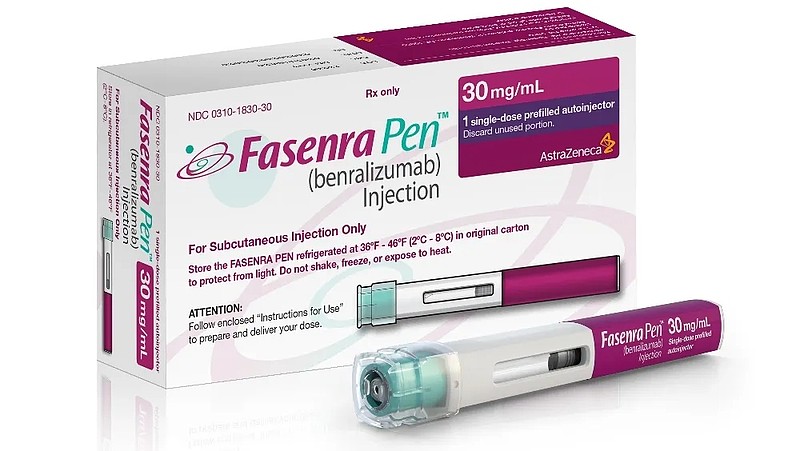UK pharmaceutical giant AstraZeneca Inc. (NASDAQ: AZN) has received marketing approval from the European Commission for its drug Fasenra (benralizumab) as an additional treatment for adult patients suffering from relapsing or refractory eosinophilic granulomatosis with polyangiitis (EGPA).
The approval follows the successful outcomes of the MANDARA Phase III trial, marking the first head-to-head non-inferiority trial of biologics in EGPA patients. In the trial, patients were randomized to receive either a single 30 mg subcutaneous injection of Fasenra or three separate 100 mg subcutaneous injections of mepolizumab every four weeks. Results indicated that nearly 60% of patients treated with Fasenra achieved remission, a rate comparable to those treated with mepolizumab. Furthermore, 41% of Fasenra-treated patients were able to fully discontinue oral corticosteroids (OCS), compared to 26% in the comparator group, representing a significant difference of 16% (95% CI: 1,31).
EGPA, previously known as Churg-Strauss Syndrome, is a rare and severe immune-mediated inflammatory disease affecting small to medium-sized blood vessels. Symptoms include extreme fatigue, weight loss, muscle and joint pain, rashes, nerve pain, sinus and nasal symptoms, and shortness of breath, with potential fatality without treatment. Benralizumab, already approved in over 80 countries including the US, Japan, EU, and China, is also being developed for other diseases such as chronic obstructive pulmonary disease and hypereosinophilic syndrome.- Flcube.com
